Judge Rejects Trump’s Bid to Dismiss Hush Money Conviction Despite Supreme Court Immunity Ruling
New York, NY — In a major legal setback for former President Donald Trump, a New York judge has rejected his motion to dismiss his conviction in the highly publicized hush money case. Trump’s defense team had argued that the recent Supreme Court ruling on presidential immunity should nullify his conviction, but Judge Juan Merchan ruled otherwise, stating that the case centers on personal conduct, not official acts.
Ruling Declares Trump’s Actions Personal, Not Presidential, as Legal Battle Intensifies
The ruling comes amid heightened political and legal scrutiny, as Trump continues to campaign for the 2024 presidential election. Trump was found guilty in May 2024 of 34 felony counts of falsifying business records in connection to payments made to adult film actress Stormy Daniels during the 2016 presidential campaign. The payments, prosecutors argued, were made to conceal information from voters and constituted a breach of election law.
Trump’s attorneys seized on the Supreme Court’s recent landmark decision that reinforced immunity protections for sitting presidents regarding official actions taken while in office. The ruling has sparked widespread debate about the scope of presidential immunity and its implications for future legal challenges involving high-level officials.
In their argument, Trump’s legal team contended that the charges against him should be dismissed because aspects of the alleged conduct overlapped with Trump’s role as a presidential candidate. However, Judge Merchan ruled on Monday that the Supreme Court decision does not apply to Trump’s case.
“The actions in question—falsifying business records to cover up a payment to silence damaging personal information—do not pertain to the official duties of the presidency,” Judge Merchan wrote in his decision. “This was conduct of a deeply personal nature, taken to benefit the defendant’s private interests as a candidate, not as President of the United States.”
The Background: Hush Money and Falsified Records
The case stems from a $130,000 payment made in October 2016 to Stormy Daniels, whose real name is Stephanie Clifford. Daniels alleged that she had an extramarital affair with Trump in 2006, a claim Trump has repeatedly denied. Prosecutors argued that Trump, then a candidate for president, orchestrated the payment to prevent Daniels from publicly disclosing the alleged affair in the final weeks of the 2016 election.
While the payment itself was not illegal, Manhattan District Attorney Alvin Bragg’s office accused Trump of falsifying business records to disguise the reimbursement to his former attorney, Michael Cohen, who facilitated the payment. Cohen, who later turned state’s witness, testified that the reimbursement was falsely labeled as “legal expenses” in Trump Organization records.
The jury ultimately found Trump guilty on all 34 counts of falsifying records, making him the first former U.S. president to be convicted of a crime. The conviction has remained a focal point for Trump’s critics, while his supporters have rallied around him, decrying the case as politically motivated.
Trump’s Defense and the Supreme Court Ruling
The Supreme Court’s recent decision on presidential immunity bolstered Trump’s arguments in his ongoing legal battles. The ruling affirmed that sitting presidents are shielded from prosecution for actions taken as part of their official duties. Trump’s attorneys attempted to extend that principle to his hush money case, suggesting that his actions were intertwined with his campaign for public office and, therefore, should receive immunity.
However, Judge Merchan firmly rejected this line of reasoning, emphasizing the distinction between Trump’s private conduct and official duties.
“The Supreme Court’s ruling speaks to the protections afforded to a sitting president in the execution of official acts,” Judge Merchan wrote. “It does not extend to personal actions taken to influence an election or to conceal personal misconduct. Such conduct is not shielded under any interpretation of presidential immunity.”
Political and Legal Implications
The ruling is expected to have far-reaching implications as Trump navigates a complex web of legal challenges while simultaneously campaigning for a return to the White House. The hush money case is just one of several ongoing legal battles involving Trump, including federal charges related to the handling of classified documents and allegations of election interference.
Despite his conviction, Trump remains the frontrunner for the Republican nomination in the 2024 presidential election. His supporters have largely dismissed the legal challenges as part of a broader effort to undermine his candidacy. Trump himself has repeatedly labeled the cases against him as a “witch hunt,” aimed at derailing his political comeback.
In a statement following Judge Merchan’s ruling, Trump criticized the decision, calling it “a disgrace to justice” and vowing to appeal. “This is yet another example of the political persecution I have faced since the day I announced I was running for office,” Trump said. “They won’t stop me, and they won’t stop us from making America great again.”
Meanwhile, legal experts note that Judge Merchan’s decision reaffirms the principle that no individual, regardless of their position, is above the law.
“The court’s rejection of immunity claims in this case underscores the importance of accountability,” said former federal prosecutor Jessica Levin. “The allegations at the heart of this case are personal and involve conduct that any citizen would be held accountable for.”
What’s Next?
Trump’s legal team is expected to appeal Judge Merchan’s ruling, a process that could take months to resolve. In the meantime, Trump’s conviction remains in place, though sentencing has been delayed as legal challenges continue.
With the 2024 election looming, the decision adds another layer of uncertainty to an already turbulent political landscape. As Trump’s legal battles unfold, both supporters and opponents are watching closely, aware that the outcome could shape the course of American politics for years to come.
Also Read- 1. “Trump’s Second Term: How New Policies Could Affect Global Markets and India’s $190 Billion Trade Ties”
2. Heightened Conflict in Gaza: Airstrikes and Humanitarian Crisis Continued on 16th December 2024.
Reference- To know more in detail click here.











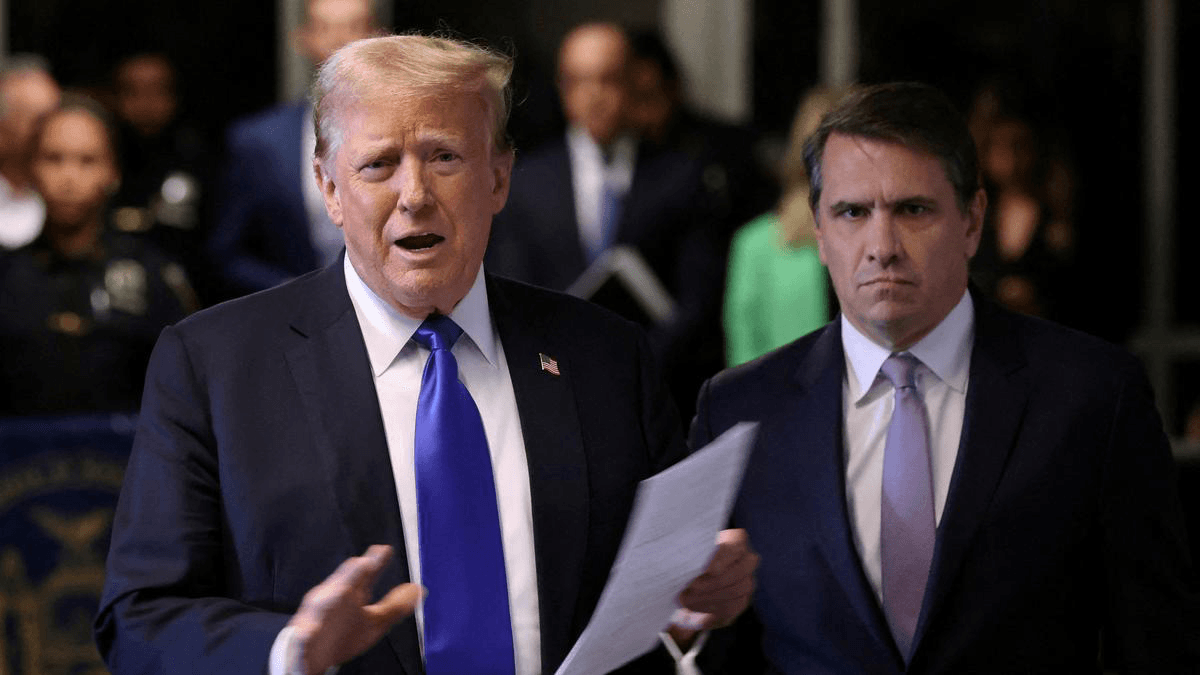


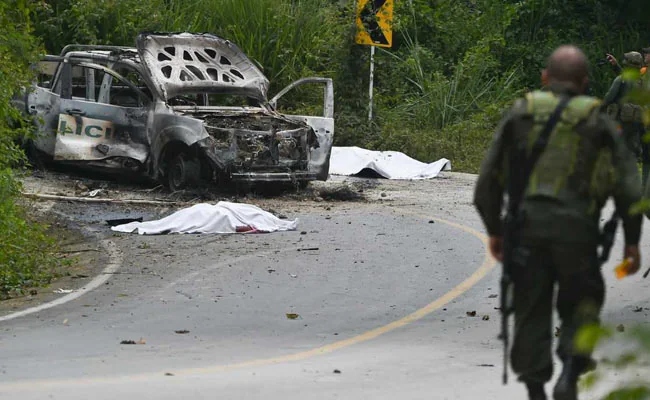

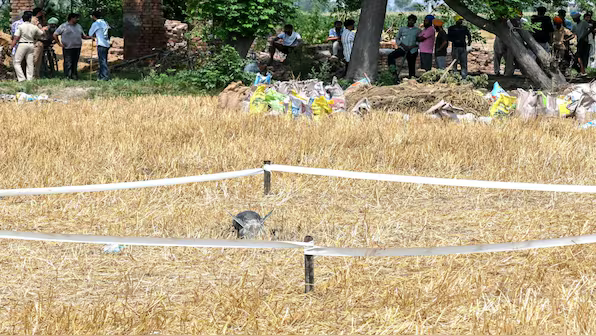

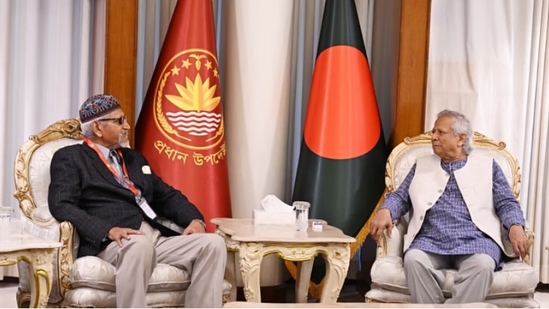
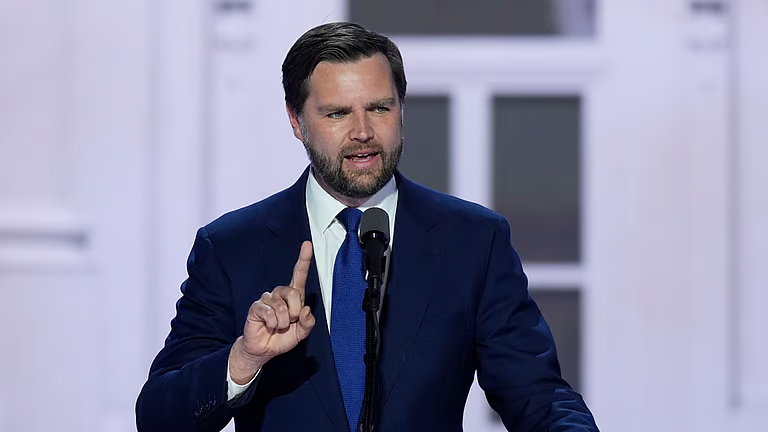
2 thoughts on “Judge Rejects Trump’s Bid to Dismiss 34-Count Conviction in Hush Money Case”